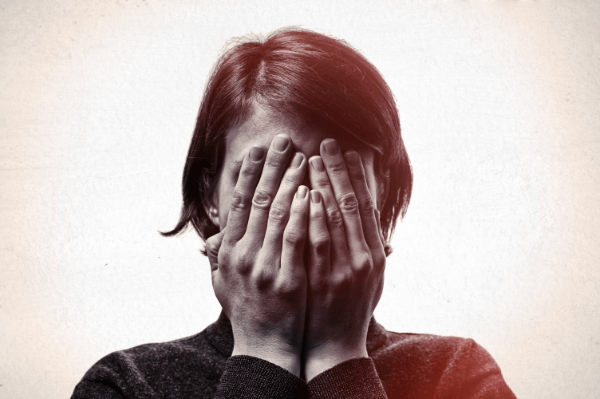
Have you ever felt frustrated, or even very frustrated, when you thought that someone was not following the Covid-19 isolation and distancing rules? I definitely have! I am afraid that Covid-19 is going to hit me next and I do not want all my distancing efforts to go to waste.
In many countries police are roaming the streets checking that people are abiding by the rules. However, when people start ‘policing’ each other, and doing so in a shaming way (see links to news articles below), where is the line and how do we draw it? It is a tricky balance, for which I don’t have all the answers, but here are my thoughts to get us thinking and becoming aware.
News articles:
https://www.bbc.co.uk/news/uk-scotland-edinburgh-east-fife-52230081 https://www.theguardian.com/society/2020/apr/18/duty-or-score-settling-rights-and-wrongs-of-corona-shaming?CMP=Share_iOSApp_Other
What does shaming look like?
Shaming can occur both in subtle and obvious ways, by looking at each other with disgust and disdain, accusing, shouting, name-calling, and ridiculing each other. Shaming can also occur online when we share and comment on videos, photos, and posts. This poses additional dangers. When all we can see is a person’s profile picture, or the words they write, it is easier to ignore or forget that on the other side of the screen is a real human being, with real feelings. This can make it easier to target people, and for others to follow suit.
What shame feels like
We have probably all been on the receiving end of shame, way before Covid-19. My personal experience of shame is that it is a nasty feeling that hangs around. Shame is not about our behaviour or about doing something wrong. Shame takes it a step further because it is about being wrong. It is about our identity as individuals and is associated with negative self-beliefs such as ‘I am bad, I am unworthy, I am flawed’. When we are shamed, we receive a message that we are not accepted as we are and we are at risk of being shunned or excluded. Social exclusion is a real source of threat because social connectedness is conducive towards our wellbeing, and when we are not connected, we are suffering.
Why are we resorting to shaming?
We may be trying to feel better about ourselves, more in control of our situation, and safer in our environment. We are a few months into Covid-19 and many of us are still fearful of our own and our loved ones’ lives, grieving those who have died, struggling financially, stressed by the challenges of working from home and home-schooling, and battling with the uncertainty of our current situation. It’s really tough. Are we going to get it?
The truth is that with Covid-19 we are a risk to each other if we are not careful, so it follows that our fearful mind can lock down onto others as a source of danger. Shaming may be a desperate attempt to make people feel bad so that they fall in line and act in a manner that is socially acceptable.
The impact of being shamed
We can react to shame in different ways. When we feel ashamed, some of us may try hard to comply with social norms and please others. If this solely comes from a place of fear however, it may turn into blind compliance and come at a cost to ourselves. Some of us may withdraw because it is safer and there is less risk of being rejected. We may internalise beliefs about being bad and unworthy which may decrease our motivation to change and lead us to engage in behaviours that are unhelpful and even harming towards ourselves. Some of us may direct our behaviour externally by attacking, blaming, and shaming others back.
Just like Covid-19 has a Reproduction Number (R0 or R-nought), I would argue that shaming can have a Reproduction Number too. There is the risk that shaming begets shaming, that threat begets threat and just like a virus, it starts to ‘catch’. It may cause more disconnection within society as we categorise people into the ‘bad other’ group, which we work hard to keep a good distance from, and make sure that others do too.
Isn’t the spread of virus enough?
Moving away from shaming
Accessing our wisdom
We can use our wisdom to remember that is not our fault that we have minds that focus on our own needs, that are hardwired to avoid harm and survive, even if it comes at a cost to others. However, understanding human nature does not justify it, nor mean that we like it or passively accept it.
It is our responsibility to learn how to manage our emotions and thoughts so that they do not fester, become overwhelming, and get expressed in a way we did not intend. We have incredible potential to be mindful and aware of our emotions and to develop our skills to actively manage them so that they do not start to manage us. It is our responsibility to do what we can for ourselves and each other to prevent unnecessary harm and suffering.
However, shaming is not an effective way of coping with how we feel and bringing about lasting behaviour change. We can move away from shaming by moving towards empathy.
Active empathy
When we empathise, we put ourselves in another person’s shoes. This can help us see that the other person has their own range of emotions, thoughts, challenges, and life circumstances that we are not aware of. Empathy can be helpful in different scenarios:
If we are considering breaking the safety guidelines, empathy can help us ask questions like: ‘If I go out to meet a group of friends, how might other people feel and be affected?’
If we are getting upset by someone’s behaviour, empathy can help us to think: ‘What may be going on for this person?’, or ‘Are they standing too close because they did not realise’. This may prevent us from impulsively acting on our emotions and jumping to incorrect conclusions.
If a person’s behavior triggers concern about our own and others’ safety, and it is necessary to do something about it, then we need to think carefully about HOW we do so. Empathy can help us remember what it feels like to be shamed and to communicate and act in a kinder and more respectful way. We can ask the person questions in a respectful way to gather the information about what is happening. We can even check whether we can help out. We can ask them to move to the recommended 2m distance. Of course, we can also focus on what we can control and edge away ourselves if necessary.
Amending mistakes
Empathy can help us realise that we hurt others or caused others distress by not following safety guidelines or by shaming them. As a result, feelings of guilt may arise and it is important to pay attention to them. Although guilt can be difficult to experience, it is actually a helpful feeling. Guilt is about our behaviour. It tells us that we acted or behaved in a way that is incongruent with our values or morals (unlike shame, which tells us that we are bad people). Guilt can motivate us to make amends and learn from our mistakes so that we can avoid those behaviours and act in line with the person we want to stand for.
Accepting what is in our control
The reality is that we are not perfect because we are human. Even if we raise our concerns and ask people to follow guidelines in a respectful and assertive way, people may still not listen, may attack us back, and may not appreciate the risks they are posing to others. We may discover that we cannot force people to follow the rules. We may be left wondering whose role is it to enforce rules? The police, the government? This can leave us feeling more frustrated, helpless, and powerless.
This is where it can be helpful to focus our attention instead on what is in our control and to continue to take responsibility to abide by guidelines ourselves. It can also be helpful to focus our attention on what is good and what is going well, even in the midst of all the challenges we face. If we look around, many of us are working hard to abide by government guidelines and are doing a good job of it! It is important to not lose sight of these mammoth efforts.
Adopting kindness and connection
Opening up to, rather than closing off from each other, can be challenging at a time when it is being drilled into us to evade each other. I have noticed for instance how I have unintentionally created more separation from people, by avoiding eye contact whilst trying to keep my distance. It is important for us to catch these behaviours because they breed disconnection, which may carry on even when this is over if we are not careful.
From 2 meters apart it is still possible to look directly at each other.
When we are not wearing a mask, it is still possible to smile.
And when are 2 meters apart and wearing a mask, we can still smile with our eyes.
This article is for information only and should not be used for the diagnosis or treatment of medical conditions. myHealthSpecialist makes no representations as to the accuracy or completeness of any of the information in this article or found by following any link from this article. Please consult a doctor or other healthcare professional for medical advice.

Dr Angelica Attard, Clinical Psychologist
Read Dr Angelica Attard’s latest article: Approaching Coronavirus with Compassion
Book an appointment with Dr Angelica Attard